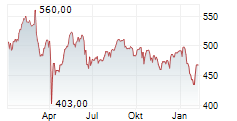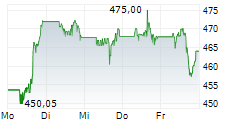
Mastercard
NORTHAMPTON, MA / ACCESSWIRE / September 30, 2024 / Business travel is continuing to rebound faster than predicted - and with net zero deadlines looming, it's even more important to reduce travel's carbon footprint. The task is complicated and tricky, but data analytics supercharged by artificial intelligence can make it easier for companies to track travel-related carbon emissions and offer precise insights for more sustainable travel practices.
For example, PredictX's artificial intelligence-powered platform gathers and crunches a company's travel data to get a transparent accounting of carbon emissions, find cost savings and alert employees about more climate-friendly travel options, so a company can rein in CO2 emissions.
"A good analogy of how PredictX works in some ways is a wastewater treatment plant, except we're cleaning dirty data instead of dirty water," says PredictX CEO Keesup Choe. "If it's not accurate and consolidated and clean, then whatever you calculate from it is going to be garbage."
PredictX recently joined Mastercard's extensive ecosystem of partners to support companies in better managing travel spend through policy compliance, auditing and sustainability insights. The Mastercard Newsroom recently spoke to Choe and Mastercard's Lydie Charpin, senior vice president of corporate travel and B2B commercial card, about the challenges of tracking sustainable travel, what companies can do to lower their carbon emissions and how they can engage employees to come along for the ride.
When PredictX moved into the corporate travel space, what were your customers' top concerns?
Choe: At the time, companies couldn't answer the basic questions, like who spent what, with whom, let alone why they spent it. One of the reasons is that in travel, data is incredibly fragmented. There's data from the travel management companies and then expense systems, card systems. Travelers can sometimes book directly with a hotel, airline or third-party site. So simple questions - even "How much do we spend?" - were difficult to answer. Once they started getting data, they needed the right tools to help them use it.
When did you start to see environmental and social sustainability become more of a priority for corporations in the context of business travel?
Choe: It's not a coincidence that many of the pledges to get to net zero were made during the pandemic, when there was virtually no corporate travel. It seemed easier to meet some of these goals when the numbers didn't look as challenging.
What makes tracking ESG metrics like carbon emissions so challenging in this space?
Charpin: As Keesup mentioned, it's complex because it's fragmented, but also, and very importantly, it's not yet standardized. However, there's been significant progress with groups emerging to help establish sustainability standards for the travel industry. For instance, Mastercard recently joined the Travalyst Coalition, which aims to bring consistent sustainability information to the mainstream to help business and leisure travelers make more conscious travel choices. Travalyst has so far focused on scaling sustainability data for aviation and accommodation such as the Travel Impact Model, which since its launch has shown flight emissions estimates to over 65 billion travelers at the point of booking.
While significant progress has been achieved with standardizing flight emission data, the hotel industry is considerably more difficult. There's not yet a clear consensus that this given hotel has the equivalent of this specific carbon footprint. Rather, an online travel booking platform can use one measurement and a major hotel chain can use another. The push for standardization throughout the entire travel industry is more important than ever.
What should companies prioritize in their travel programs to accelerate their sustainability goals?
Choe: Companies really need to shift from passive annual reporting to active management. There's no way any efficiency measures can be made when you're measuring something once on an annual basis. More instant feedback motivates people to act.
Charpin: This feedback also enables companies to evolve their T&E policies in real time to meet their sustainability goals faster. Travel decision-makers across businesses also need to assess what trade-offs are permissible so employees travel more sustainably. Maybe it's tailoring their T&E policy to not permit connecting flights, even if they are less expensive, or buying all electric vehicles for their corporate fleet.
What role do employees play in achieving a company's sustainable travel goals, and how can they be engaged?
Choe: Education is key. Next is influencing them in the right way. PredictX has a module that identifies behavior that could be improved and automatically sends a little nudge to employees to consider a better option next time. It has to be part of an active strategy, reminding people to choose more sustainable travel as they are making the decision. I expect most people, when they're reminded, will take the option with a lower environmental impact.
Charpin: You also have to ensure the information is provided in a meaningful manner that employees can easily understand. For instance, saying your flight's carbon footprint is equivalent to the emissions produced by a household for a year will carry more weight than saying your trip will produce two tons of carbon emissions per passenger. And then you have to go one step beyond that and encourage the employee to make the right decision. I've heard of companies, for example, that gamify choices so the "greenest" team of travelers during a given month or quarter is rewarded.
What future innovations or investment areas is PredictX exploring to further enhance ESG metrics in travel management?
Choe: PredictX finds CO2-saving strategies and then broadcasts them so travel managers can execute. PredictX has a simulation engine that can tell you in advance how much a carbon footprint is going to be for, say, a conference or product launch. It can help you decide if New York or Atlanta is the right place to hold an event. Or maybe there's a different city that could actually be much lower in terms of CO2. Perhaps your usual venue isn't using sustainable electricity, so why not use this other hotel that is? It allows you to make all of these choices and analyze them, well before an event, to make sure you are making the right decisions. These sorts of forecasting and predictive tools are what we're bringing to the market.
Originally published by Mastercard
Follow along Mastercard's journey to connect and power an inclusive, digital economy that benefits everyone, everywhere.

View additional multimedia and more ESG storytelling from Mastercard on 3blmedia.com.
Contact Info:
Spokesperson: Mastercard
Website: https://www.3blmedia.com/profiles/mastercard
Email: info@3blmedia.com
SOURCE: Mastercard



